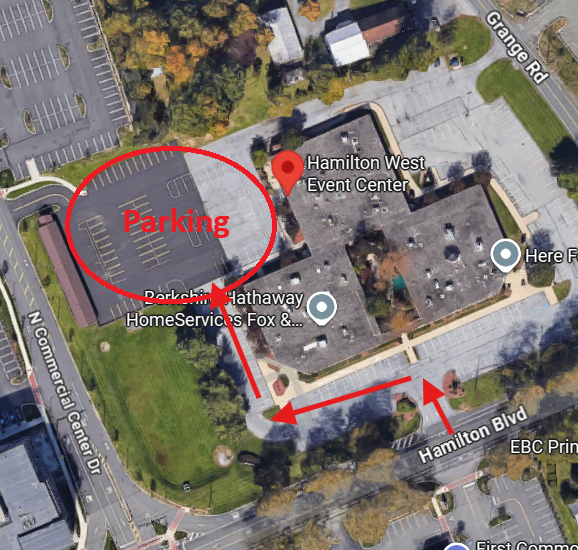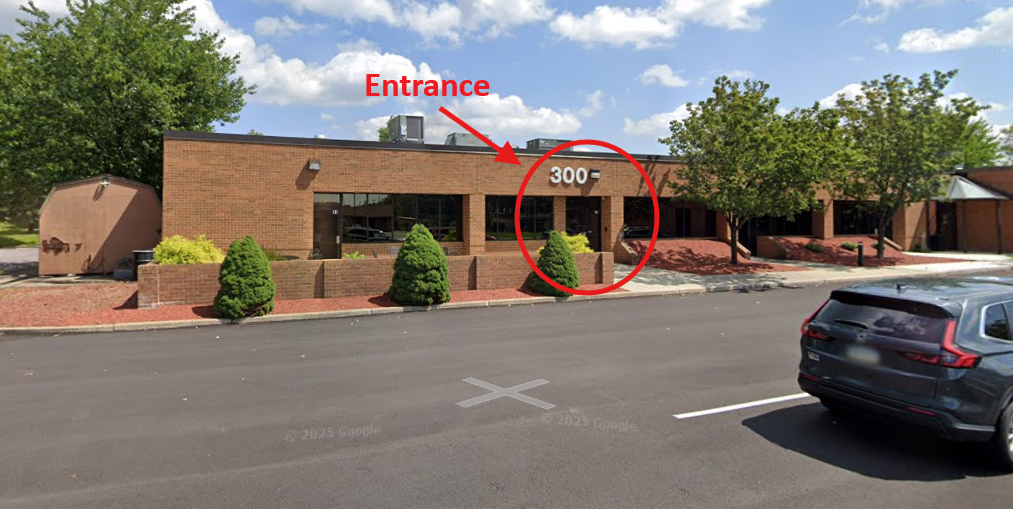Affiliation
Grace Community Church is affiliated with the Converge through our regional association, Converge MidAtlantic. We affirm Converge’s Statement of Faith and doctrinal distinctives on Christian Marriage and Humanity.
Statement of Faith
- Our Purpose in Life
- The Word of God
- The True God
- God in Christ
- Mankind
- Salvation
- Repentance and Faith
- Life in the Spirit
- The Church
- Our Worship and the Ordinances
- Last Things
1. Our Purpose in Life
Our highest purpose is to glorify God.1 We do this first by enjoying Him in heartfelt worship, and then by obeying His commands.2 We humbly ask God for worshipping and obedient hearts, so that our lives and our lips may honor the holy name of Him who dwells in eternal blessedness and unapproachable light.3
- Isaiah 43:6-7; Romans 11:33-36; 1 Corinthians 10:31.
- 1 Chronicles 16:24-29; Philippians 1:9-11.
- 1 Timothy 6:14-16.
2. The Word of God
We learn about God in the sixty-six books of the Old and New Testaments. He guided the authors of the Bible so that their words exactly expressed the truth He intended without any error, addition or omission.1 God has uniquely preserved His word through the processes of copying and translation so that it remains understandable and trustworthy.2 We diligently study these books, both in private and together3 because they are our final authority in all matters of faith and practice, and they teach everything we need to know in order to live eternally for the glory of God.4
- 1 Corinthians 2:11-13; 2 Peter 1:20-21; Deuteronomy 4:1-2; Revelation 22:18-19.
- Isaiah 40:8; Matthew 24:35.
- Acts 17:10-11; 2 Timothy 2:15.
- Psalm 119:97-104; 2 Timothy 3:14-17.
3. The True God
We pray with confidence to the one true God, who created the universe out of nothing. His will keeps the world on its ordinary course, but He also works in extraordinary ways to bless His people or to judge His enemies. In all of God’s activity, His holy character and His wise purposes never change.1 This one God eternally exists as three distinct persons, the Father, the Son, and the Holy Spirit,2 and our fellowship with God involves each person of the Trinity.3 Each of these persons has precisely the same divine nature and attributes as the others, and they act together in distinct but harmonious ways in every work of God.4
- Isaiah 43:10-13; Psalm 33:6; Psalm 135; Numbers 23:19.
- Matthew 3:16-17; 28:19; John 1:1-2; 20:27-29; Colossians 2:9.
- 2 Corinthians 13:14; 1 John 1:3.
- John 5:17-30; Colossians 1:12-20.
4. God in Christ
We know God in a personal way only through our Lord Jesus Christ. He is the eternal Son of God, who was born of a virgin, and is, therefore, truly God and truly man.1 Through His sinless life and perfect obedience to God’s law, He prepared Himself to become our redeemer. When He died on the cross, Jesus revealed God’s love for us, He gave an example of righteous suffering, and He conquered Satan.2 More than that, God was in Christ satisfying His own holy wrath against sin by substituting Himself for us.3 Then God raised Jesus bodily from the dead and took Him up into heaven. By the resurrection God reassures us that Christ’s sacrifice has been accepted and that He will come visibly to earth again.4
- Matthew 11:25-27; Luke 1:26-35; John 1:1-18.
- Hebrews 4:15; Romans 5:6-8; 1 Peter 2:18-25; Hebrews 2:14-15.
- Romans 5:9-10; 2 Corinthians 5:18-21; Galatians 3:10-13.
- Acts 2:22-24; 1 Corinthians 15.
5. Mankind
We respect the dignity of all people, including both sexes and all races, because God made mankind in His own image.1 When the first human couple sinned, the image of God in them was damaged, and they became incapable of knowing, loving and pleasing God. All of us are a part of Adam’s rebellious race, being sinners both by birth and by choice.2 Nevertheless, we rejoice that the image of God is being restored in all who are saved by Christ, and we gladly acknowledge all such people as equal brothers and sisters in the Lord.3
- Genesis 1:26-28.
- Romans 3:23; 5:12-21; 8:6-8.
- 2 Corinthians 3:17-18; Colossians 3:8-14.
6. Salvation
We praise God alone for our salvation. According to His own free and eternal purpose, our Father chose us before the foundation of the world.1 In due time, He called us individually to Christ through the gospel.2 Using the word of God, the Holy Spirit caused us to be born again, gave us faith in Christ, and by that faith united us to the Savior.3 On the basis of that union with our righteous Redeemer, God forgave our sins and declared us righteous wholly apart from any merit in ourselves. This is the great gift of justification.4 Furthermore, God has adopted us into His family and made us fellow heirs with Christ.5 We rejoice that our salvation can never be lost because the Spirit of God keeps us united to the Savior so that we continue to love and trust Him.6
- Romans 8:28-30; Ephesians 1:3-6; 2 Thessalonians 2:13-14.
- 1 Corinthians 1:23-29.
- John 1:11-13; 3:3-8; James 1:17-18; 1 Peter 1:3; 22-25; John 6:35, 37, 44; Acts 13:48; 2 Corinthians 5:17; Colossians 1:27; John 15:1-10.
- Romans 4:1-5:1; 1 Corinthians 1:30-31; Philippians 3:4-9.
- Romans 8:14-17; Galatians 4:1-7.
- John 10:27-30; Ephesians 1:13-14; 4:30; Hebrews 7:23-25; 1 Peter 1:3-9.
7. Repentance and Faith
We urge all people to repent of their sins and to believe in Christ, for this is the only way they can be saved.1 True faith is coming to Christ, receiving Him, and trusting Him alone for salvation.2 This saving faith is always accompanied by repentance, that is, a godly sorrow for sin and a longing for holiness. True repentance must not be confused with the remorse of a sinner who only laments his failures and fears God’s judgment.3 Therefore, we exhort professing Christians to examine themselves to make sure of their salvation.4
- John 5:24; 8:24; Acts 16:31; Hebrews 11:6; Luke 13:1-5; Acts 17:30-31.
- John 1:12; 6:35-37; Jeremiah 17:7-8.
- Acts 11:18; 20:21; 26:18-20; 2 Corinthians 7:8-13.
- 2 Corinthians 13:5; 2 Peter 1:1-11.
8. Life in the Spirit
We depend on the Holy Spirit who enables us to glorify God. When we were saved, He entered our lives and began the process of making us more like Christ.1 He also gave each of us one or more spiritual gifts to use for building up the church.2 Since all gifts are from the Spirit of Christ, we do not exalt any one gift as a special evidence of salvation or holiness. Instead, we acknowledge a fervent love, both for the Triune God and for people, as the primary fruit of the Spirit.3 God’s word and His Spirit teach us to pursue sexual purity and to flee the domination of our lives by sin or by any harmful activity, for Jesus Christ alone, is our Master.4
- Romans 8:9-13; 2 Corinthians 3:17-18.
- Romans 12:3-8; 1 Corinthians 12; 1 Peter 4:8-11.
- Matthew 22:34-40; 1 Corinthians 13; Galatians 5:22-23.
- 1 Corinthians 6:9-20; 2 Timothy 2:22.
9. The Church
In accordance with the New Testament marks of a true church, we confess the doctrine of the Apostles; we seek to have a converted and holy membership; we celebrate the ordinances commanded by our Savior; and we acknowledge our unity with all our Christian brothers and sisters wherever they may worship.1
We are committed to the fellowship of our local assembly, and we support its ministries by our attendance at its services, by our sacrificial giving, by submitting to its discipline, and by laboring according to the abilities that God has given us.2
As a self-governing church, we proclaim our freedom from interference by any ecclesiastical or political authority. However, we gladly cooperate with other congregations that hold to the essential doctrines of Scripture, and we obey our civil government except in matters opposed to the word of God.3
- Acts 2:41-47; Galatians 1:6-9; 1 Peter 2:9-10; Ephesians 4:1-6.
- Hebrews 10:24-25; 1 Timothy 5:17-18; Matthew 18:15-20; Romans 12:3-13.
- Acts 4:19-20; 5:24-29; Romans 13:1-7.
10. Our Worship and the Ordinances
We observe the apostolic practice of setting aside the Lord’s day for public worship. In our corporate worship, we follow the pattern set forth in Scripture. Thus, we engage in prayer; we read and preach God’s word; we praise God in spiritual songs; we present our offerings to God; and we observe the ordinances commanded by our Savior. These ordinances are visible signs of the saving work of Christ that God has designed for our spiritual benefit.1
We practice baptism of believers by immersion as a prerequisite for church membership. Baptism pictures the believer’s cleansing from sin and his union with Christ in His death and resurrection. In baptism the Lord encourages the new believer to leave his old life behind and to walk in the new life of Christ.2
The Lord’s Supper is open to all who have been born again, but we encourage believers to be baptized before they share in it. The Lord’s Supper is a memorial of Christ’s death. The bread and cup are symbols of His body and blood, which God uses to draw us into spiritual communion with our crucified, risen Savior.3
- Acts 20:7-12; 1Corinthians 16:1-2; Colossians 3:16; 1 Timothy 2:1-8; 4:11-16.
- Matthew 28:19-20; Acts 16:22-34; 22:16; Romans 6.
- 1 Corinthians 10:14-22; 11:23-26.
11. Our Mission
We seek to fulfill Christ’s command to make disciples of all nations1 by engaging in the following endeavors: (a) Within our own congregation we train believers in Christian doctrine, life and witness, and we encourage each other through mutual fellowship.2 (b) Among our neighbors and in our nation our primary goal is to evangelize the lost, but Christ’s love for people also compels us to labor for justice and to exercise compassion in our society.3 (c) By praying, giving and going we seek to reach across cultural boundaries to spread the good news of Christ to other people-groups around the world.4
- Matthew 28:18-20; Acts 1:8.
- 2 Timothy 2:2; Hebrews 10:23-25.
- Proverbs 24:10-12; James 1:27; 5:1-6.
- 1 Corinthians 9:7-14, 19-23.
12. Last Things
We are comforted by the promise that when believers die, their spirits are immediately with the Lord in heaven.1 However, we have a further hope, which is even more blessed–the glorious return of our Savior Jesus Christ. When He comes, He will gather His elect, the living and the dead, from every tribe and tongue;2 He will establish His kingdom of peace; and He will raise and judge those who have rejected Him, casting them into the unending torment of hell.3 Although we are pained by the doom of the lost, we rejoice in the promise that justice will triumph, so we pray fervently for our Lord’s return, and we labor diligently to be ready when He comes.4
- Luke 16:19-31; 23:39-43; 2 Corinthians 5:6-8; Philippians 1:21-23.
- 1 Thessalonians 4:13-18; 1 Corinthians 15:35-58.
- John 5:25-29; Revelation 19:11-21; 20:11-15.
- Luke 12:35-48; 2 Peter 3:10-12.

